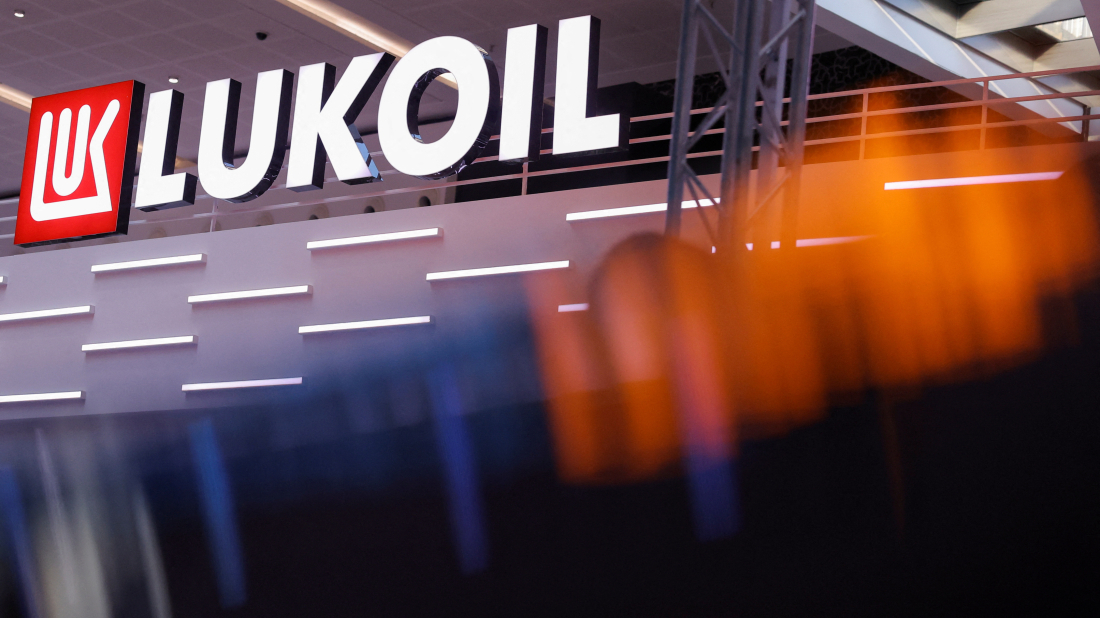Greek PM Mitsotakis and Türkiye's President Erdoğan 'committed to improving relations'
Greek Prime Minister Kyriakos Mitsotakis visited Türkiye on Wednesday as part of a large delegation for talks with President Recep Tayyip Erdoğan....

Britain targeted Russia's two largest oil companies, Lukoil and Rosneft, and 44 shadow fleet tankers on Wednesday in what it described as a new bid to tighten energy sanctions and choke off Kremlin revenues.
Lukoil and Rosneft were designated under Britain's Russia sanctions laws for what London described as their role in supporting the Russian government.
They are subject to an asset freeze, director disqualification, transport restrictions, and a ban on British trust services.
“We are introducing targeted sanctions against the two biggest oil companies in Russia, Lukoil and Rosneft,” said Finance Minister Rachel Reeves during a visit to the United States.
The UK government described the firms as “strategically significant to the Kremlin,” saying their activities contribute to state revenues sustaining Russia’s war.
Reeves added that London is “ramping up pressure on companies in third countries, including India and China, that continue to facilitate the flow of Russian oil onto global markets.”
Russia's embassy in London said the sanctions would backfire by destabilising global energy markets and pushing up costs for British businesses and consumers.
"Contrary to the loud assurances of British leaders, these restrictions will not have any impact on the Russian foreign policy course," the embassy statement said.
The new sanctions target 51 ships, including 44 within the so-called shadow fleet, as well as individuals and entities across sectors including energy and defence.
The latest sanctions also include seven liquefied natural gas tankers and the Chinese Beihai LNG terminal, which has been importing cargoes from the sanctioned Russian Arctic LNG2 facility, Britain said.
The United States and Azerbaijan signed a strategic partnership in Baku on Tuesday (10 February) encompassing economic and security cooperation as Washington seeks to expand its influence in a region where Russia was once the main power broker.
Buckingham Palace said it is ready to support any police investigation into allegations that Prince Andrew shared confidential British trade documents with late sex offender Jeffrey Epstein, as King Charles expressed “profound concern” over the latest revelations.
“Peace is not just about signing treaties - it’s about communication, interaction and integration,” Sultan Zahidov, leading adviser at the AIR Center, told AnewZ, suggesting U.S. Vice President JD Vance's visit to the South Caucasus could advance the peace agenda between Azerbaijan and Armenia.
Greek Prime Minister Kyriakos Mitsotakis arrived in Ankara on Wednesday, where Turkish President Recep Tayyip Erdoğan held an official welcoming ceremony at the Presidential Palace, marking the start of high-level talks between the two NATO allies.
Europe heads into the Munich Security Conference, 13 February, amid deepening unease over U.S. policy, as President Donald Trump’s hard-line stance on defence, trade and territory fuels doubts about Washington’s long-term commitment to transatlantic security.
Russia has attempted to "fully block" Meta Platforms-owned WhatsApp in the country, a company spokesperson told Reuters on Wednesday, as Moscow promotes home-grown platforms and seeks greater control over its internet space.
The suspect in a deadly school shooting in western Canada was an 18-year-old woman who allegedly killed her mother and stepbrother before attacking her former school. Investigators have not provided a motive for what is being described as one of the worst mass killings in Canada.
Bangladesh, South Asia’s second-largest economy, stands at a decisive crossroads. As voters head to the polls in a watershed election, the country faces a defining question: can it move from revolutionary upheaval to a stable, sustainable democracy?
The United States is set to deploy an additional 200 troops to Nigeria as part of expanded counterterrorism cooperation, according to a senior Nigerian military source.
Italy will not join U.S. President Donald Trump’s Board of Peace because of constitutional constraints, Foreign Minister Antonio Tajani said on Wednesday, confirming Rome’s decision to stay out of the initiative.
You can download the AnewZ application from Play Store and the App Store.

What is your opinion on this topic?
Leave the first comment